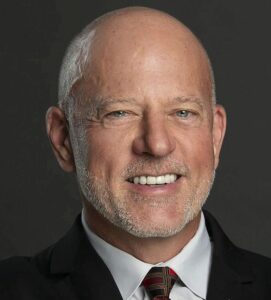 Growth and change are risk factors for any organization. With both, there are new opportunities as well as potential pitfalls. One of the most dangerous times for any nonprofit is when it grows to the point of hiring a Development Director.
Growth and change are risk factors for any organization. With both, there are new opportunities as well as potential pitfalls. One of the most dangerous times for any nonprofit is when it grows to the point of hiring a Development Director.
In small organizations, the Executive Director assumes the development function, which is largely successful based on the passion and dedication that the Director brings to the job. And it is this success that may lead to hiring a Development Director.
This is a good thing, but it must be carefully considered.
First, any initiative that increases fixed expenses should be approached with caution.
Second, the motivation and structure behind the decision must be sound.
Expenses
Fixed expenses increase the break-even point of the organization. When revenues are disrupted by the economy or the loss of a key funding source, it’s that much harder to survive. “Lean and mean” may not be the most comfortable profile, but it sure does come in handy during tough times.
Motivation & Structure
Often, the impetus for hiring a Development Director is that the Executive Director “doesn’t have time” for fundraising. But “having time” for fundraising can be a fuzzy concept. In the modern world, many of us could fill our days responding to email messages. Getting beyond that requires extraordinary discipline.
While the needs of every organization are different, it may make more sense to prioritize the Executive Director’s duties to allow more time for fundraising. After all, the Executive Director likely retains the bulk of the historical relationships of the organization.
Even if it’s clear a separate Development Director is needed, another danger is in the Executive Director becoming disengaged from the development function. It can be a natural result, because “now there’s someone else to do development.” The Executive Director transitions from being a hunter to tending the flock, which may not be the most cost-effective strategy.
A successful Development Director will work as an appendage of the Executive Director. It’s a team effort combining the historical knowledge and relationships of the Executive Director with the expertise and accountability of a professional fundraiser.
Focus on “Results”
When it comes to the success of a development plan, most would agree the bottom line is about results. Ironically, this recognition can be the undoing of an organization’s efforts.
Results can only come from the right — and sufficient — activities. There need to be interim measures of performance by counting things like calls, face-to-face meetings, and proposals. Hiring a development director who is given the job and told to “get results” without any activity-based metrics will almost certainly fail. Too much time will have passed before it’s clear the results aren’t there, and that will serve neither the organization nor the Development Director.
Dan Weiss, founder and President of Counterpart CFO, leads a team of flexible, part-time CFOs specializing in nonprofits. To read more from Dan, follow him on LinkedIn or subscribe to his blog at www.counterpartCFO.com.
